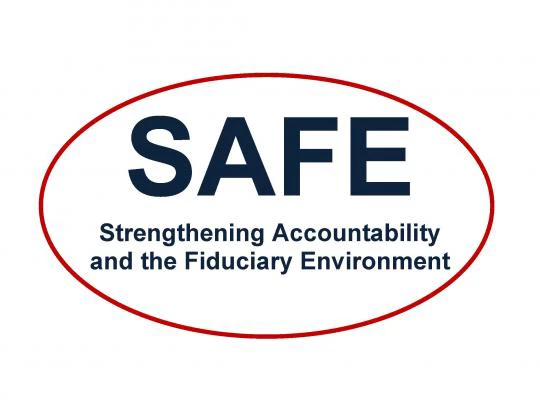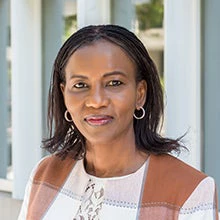The SAFE Trust Fund application (Word document) is now open until 27 February 2015.
What is SAFE?
SAFE means Strengthening Accountability and the Fiduciary Environment. It is a Trust Fund group administered by the World Bank and established by the Swiss State Secretariat for Economic Affairs (SECO) and the European Commission with the aim of improving public financial management in the Europe and Central Asia region. This Trust Fund group provides support for activities to assess public financial management (PFM) performance, identify and implement actions to achieve improvements and share knowledge and good practices across countries in the region.
Objectives for the SAFE Trust Fund
The SAFE trust fund group seeks to improve the status of PFM in participating beneficiaries in a systematic way through:
• improving understanding of PFM status in target beneficiaries;
• supporting design, implementation and management of the PFM reform agenda by governments, particularly on reform activities that are being undertaken simultaneously across the region;
• developing shared knowledge and experience on PFM reform to strengthen reform effectiveness and focus development partner support; and
• improving coordination between donors and their relationships with governments; towards limiting overlaps, and concentrating declining donor support in the region.
Who can apply?
This round of applications is open to projects from Albania, Armenia, Azerbaijan, Belarus, Bosnia and Herzegovina, Georgia, Kazakhstan, Kosovo, Kyrgyz Republic, Macedonia, Montenegro, Moldova, Serbia, Tajikistan, Turkey, Turkmenistan, Ukraine and Uzbekistan.
Project selection criteria
• Consistency with SAFE objectives and program outcomes;
• Activities are within the scope of the relevant Pillars mentioned below and within available funds. Minimum project size for SAFE is $50,000 with an upper limit of $300,000;
• Demonstrable improvements in understanding, standards or capability in relation to one or more dimensions of the PEFA framework or associated aspects of PFM and accountability;
• Consistency with potential recipient development priorities, policies and strategic development plans and, where appropriate, donor strategies and agreements;
• Do not duplicate, conflict or overlap with projects financed through other programs;
• Have potential benefits for one or more country in terms of knowledge or experience sharing or scope for comparative assessment where possible and ideally have a regional benefit;
• Beneficiaries have to demonstrate the existence of implementation capacities and the project's contribution to mid- to long-term development objectives and explain why funds for the proposed project cannot be obtained from other sources.
• Beneficiaries have to demonstrate that there is a high likelihood that results achieved through the project will be sustainable and/or will enhance the effectiveness of other PFM reform initiatives. It should also demonstrate the expected “added value”,
• Project expenditures must be incurred within the timeframe of SAFE operations, which at present is 30 June 2016.
Eligible activities
There are three Pillars of support for SAFE funded projects. Pillar I: Assessment of PFM status, Pillar II: Support for PFM reform management and Pillar III: Expanding PFM knowledge and capability.
Pillar I: Assessment of PFM status.
- Support to government-led reviews of PFM arrangements using standard international PEFA measurement framework or related diagnostic and analytical tools;
- Analysis of PFM status by skilled professionals using PEFA or related methodology;
- Preparation and dissemination of reports on financial management performance.
- Research, analysis and design of PFM reform action plan by government, in consultation with other development partners;
- Developing networks within governments to implement reforms relating to one or more aspects of the PEFA framework;
- Research to obtain deeper understanding of the results of diagnostic assessments, as well as identification and design of actions required to address weaknesses;
- Detailed analysis of specific PFM areas of importance or concern and development of action plans to address concerns or build on achievements.
- Analysis of progress and outcomes in specific beneficiaries as well as cross-cutting perspectives;
- Benchmarking and comparative analysis, involving studies of progress against specific indicators or groups of indicators, facilitation of working groups across beneficiaries to explore differences and identify practical actions to address weaknesses in one or more location;
- Wider experience and knowledge sharing, including provision of forums for exchange of information and experience, and joint activities to address common development priorities in PFM across the region.
- The managers of long term PFM reform initiatives need access to ad hoc peer, impartial expert advice. SAFE TF can provide this for countries which do not have alternative access to this level of expertise (e.g. through a twinning arrangement).
Applications will be open until 27 February 2015.
Decisions on successful proposals will be made in March 2015 with funding for project approved by the Program Steering Committee to be provided shortly thereafter. Full disbursement of funds to occur by 30 June 2016.
Where to obtain application forms
Here is the application (Word document) form. It can also be obtained from the SAFE Secretariat (address below).
Further information
Marius Koen
Secretariat, SAFE
The World Bank [MSN MC7-705]
1818 H Street NW
Washington DC 20433, USA
Tel: +1 202 458-4886
Email: mkoen [at] worldbank [dot] org



Join the Conversation